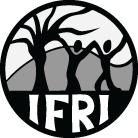Author Archives: IFRIsnre
Improving Democracy Assistance: Building Knowledge ThroughEvaluations and Research
Gibson, C., 2008. Committee on Evaluation of USAID Democracy Assistance Programs, National Research Council of the Academies
Featured Researcher – Catherine Tucker
Catherine Tucker is a longtime IFRI researcher, who serves as an Associate Professor and Chair of the Department of Anthropology at Indiana University. She is also an Associate Faculty member of the Center for Study of Institutions, Population and Environmental …
IFRI mourns the passing of founder and Nobel Laureate Elinor Ostrom
By her life and work, Lin showed what and how much is possible within the limits we endure.
Registration open for IFRI training course at University of Michigan
Sign up for this ten-week course in IFRI methods and theories. Taught in Ann Arbor by Arun Agrawal, the course runs from September to November 2012.
IFRI joins forces with the Rights and Resources Initiative
The two groups will begin collaborative research on the impacts of tenure regimes on poverty
Fall 2012: IFRI Training Course at the University of Michigan
The annual IFRI training course will be held in the School of Natural Resources and Environment at the University of Michigan, Ann Arbor for 10 weeks beginning on Sept 7, 2012. The course will be taught by Prof Arun Agrawal …
Venture meeting at the Socio-Environmental Synthesis Center (SESYNC)
IFRI will participate in a workshop hosted by SESYNC (the National Socio-Environmental Synthesis Centre) in Annapolis, Maryland USA on December 13-14th 2012. The theme is ‘Limits of Environmental Governance’. The aim is to bring together a small but diverse group of scholars and practitioners …
Management effectiveness indicators show only weak associations with the success of protected areas in avoiding fires in the Amazon
Agrawal, A., and C. Nolte. 2012. Linking Management Effectiveness Indicators to Observed Effects of Protected Areas on Fire Occurrence in the Amazon Rainforest. Abstract Management-effectiveness scores are used widely by donors and implementers of conservation projects to prioritize, track, and …
Participation of user groups in forest governance is strongly associated with social-ecological win-win outcomes
Persha, L., A. Agrawal, A. Chhatre. 2011. Social and ecological synergy: Local rulemaking, forest livelihoods, and biodiversity conservation. Science 331:1606-1608 Abstract Causal pathways to achieve social and ecological benefits from forests are unclear, because there are few systematic multi-country empirical …
Most existing work on resource commons has been inattentive to the multiple outcomes of commons management
Agrawal, A., C. Benson. 2011. Common property theory and resource governance institutions strengthening explanations of multiple outcomes. Environmental Conservation 38:199-210 Abstract Different strategies to govern resource commons generate outcomes that can be assessed along different dimensions, in terms of the …

